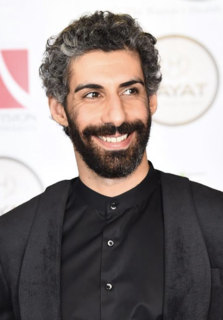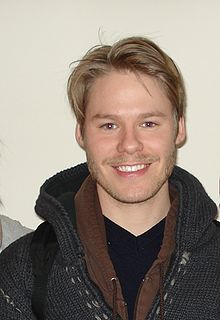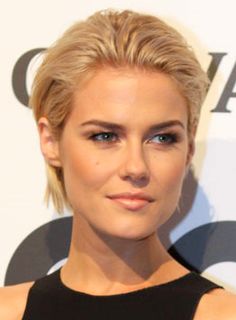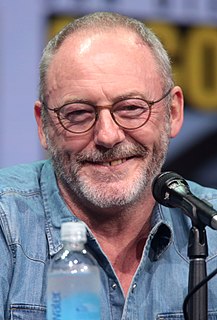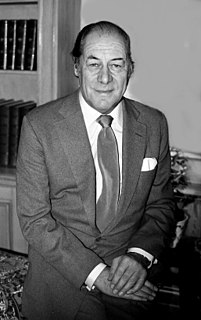A Quote by Jim Sarbh
In 'Jonaki,' it isn't about the individual actor. The actor is as important as the wall, or the water flowing down the wall, or a shadow. That kind of acting is also fascinating to me, not to be invisible necessarily, but to be in perfect synchronicity with the environment.
Related Quotes
A man or a woman is said to be absorbed when the water has total control of him, and he no control of the water. A swimmer moves around willfully. An absorbed being has no will but the water's going. Any word or act is not really personal, but the way the water has of speaking or doing. As when you hear a voice coming out of a wall, and you know that it's not the wall talking, but someone inside, or perhaps someone outside echoing off the wall. Saints are like that. They've achieved the condition of a wall, or a door.
Is there a brick wall getting in your way? Fine. That happens. But you have a choice. You can walk away from the wall. You can go over the wall. You can go under the wall. You can go around the wall. You can also obliterate the wall. In other words, don't let anything get in your way. Get a balance, and then let the positive outdistance the negative.
As every writer knows... there is something mysterious about the writer's ability, on any given day, to write. When the juices are flowing, or the writer is 'hot', an invisible wall seems to fall away, and the writer moves easily and surely from one kind of reality to another... Every writer has experienced at least moments of this strange, magical state. Reading student fiction one can spot at once where the power turns on and where it turns off, where the writer writes from 'inspiration' or deep, flowing vision, and where he had to struggle along on mere intellect.
What is drawing? How does one get there? It's working one's way through an invisible iron wall that seems to stand between what one feels and what one can do. How can one get through that wall? - since hammering on it doesn't help at all. In my view, one must undermine the wall and grind through it slowly and patiently.
You reminded me of a quote that my acting teacher Stella Adler wrote in her book ['The Art of Acting'], which I asked her to sign: "The young actor feels some greatness inside themselves that they want to give back to the world." That resonated with me, but I didn't really understand what she was talking about until much later, in the way you surmised that my struggle to become an actor was from being this kind of introverted young boy.
I had to go in and do the work of toning [invented "historical" bits] down in order to make them fit [in Lincoln in the Bardo]. It's like if you're an actor and you're always overacting, well, you're a bad actor. But if you're an actor who subdues yourself to the extent that's necessary, then you're really acting.
I had an apartment and I had a neighbor, and whenever he would knock on my wall I knew he wanted me to turn my music down and that made me angry 'cause I like loud music... so when he knocked on the wall, I'd mess with his head. I'd say Go around I cannot open the wall I dunno if you have a door on your side but over here there's nothin'. It's just flat.
Acting is bad acting if the actor himself gets emotional in the act of making the audience cry. The object is to make the audience cry, but not cry yourself. The emotion has to be inside the actor, not outside. If you stand there weeping and wailing, all your emotions will go down your shirt and nothing will go out to your audience. Audience control is really about the actor
